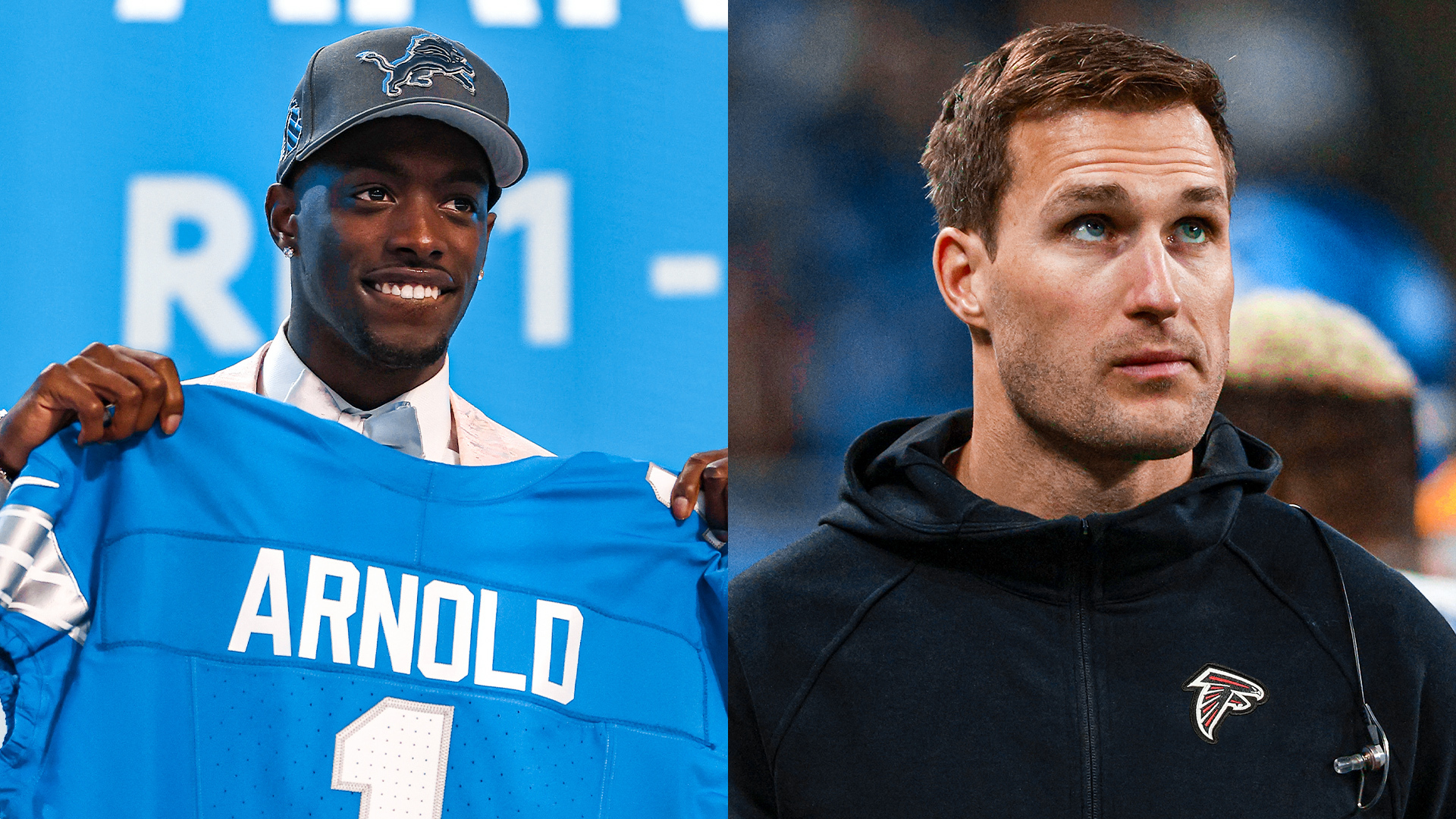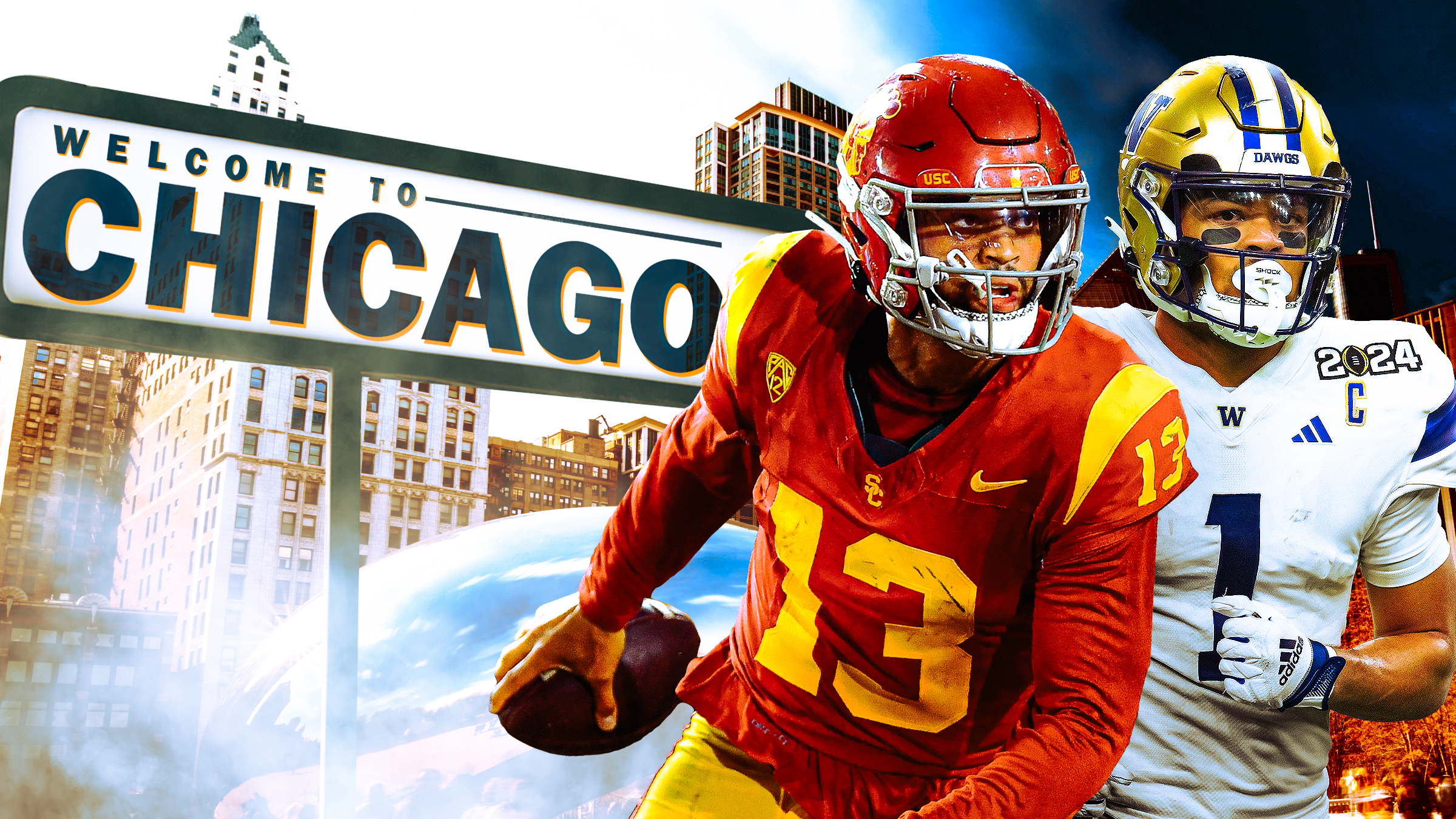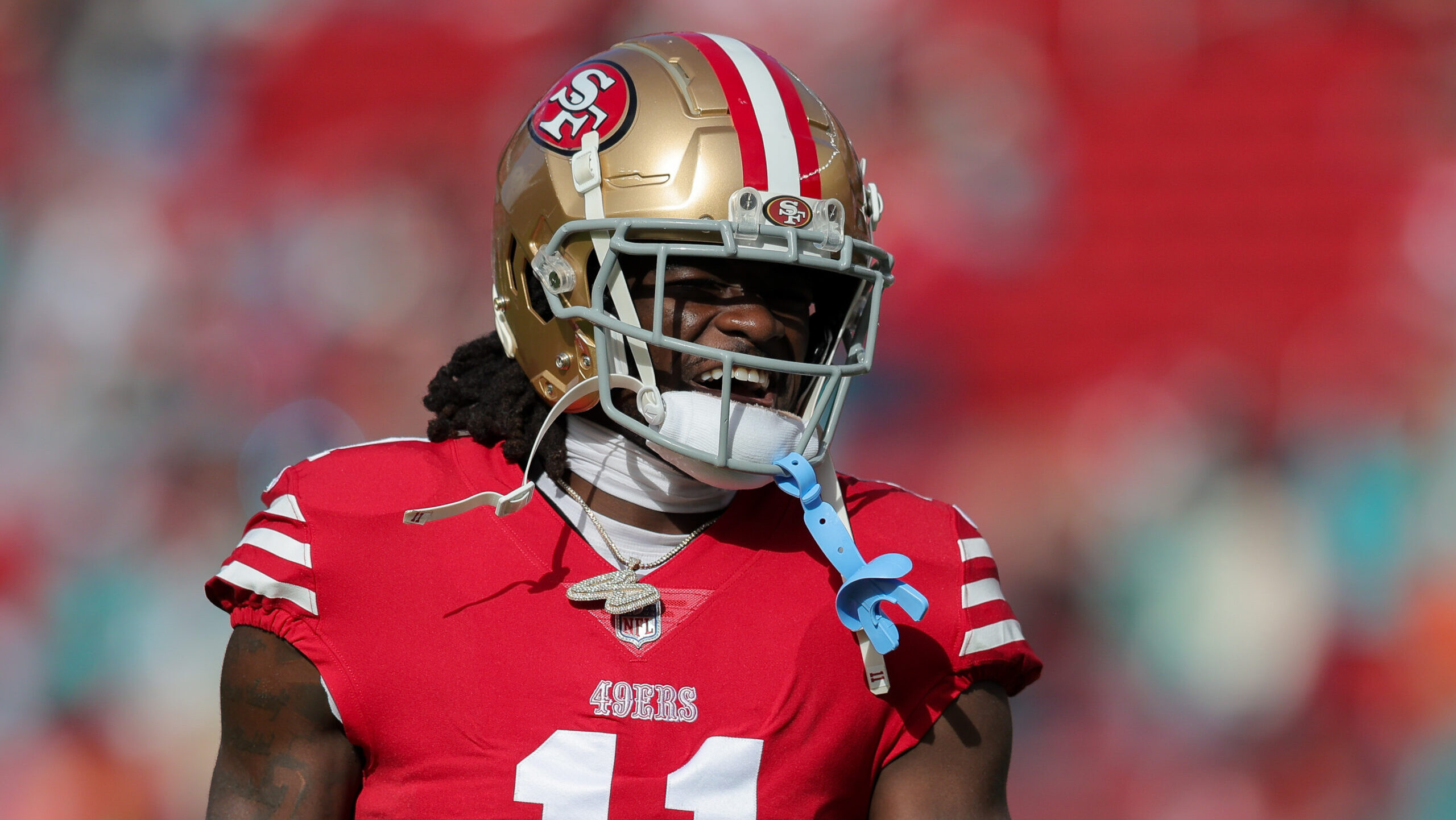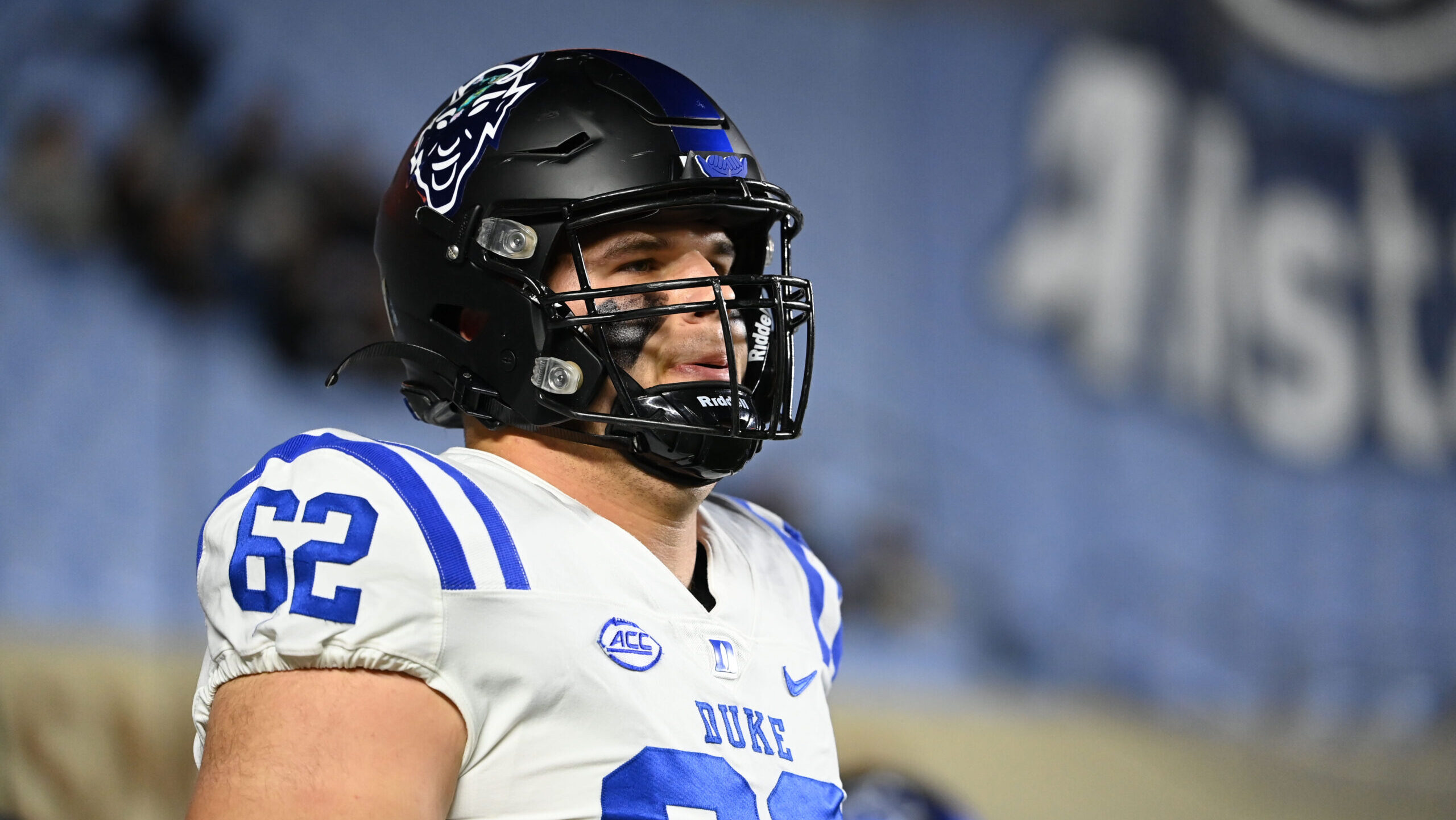Analysis
3/17/23
9 min read
Up for Debate: What Will Jets-Packers Trade Package Look Like for Rodgers?
The Aaron Rodgers Watch is not as complicated as it seems.
The Green Bay Packers are willing to trade him. The New York Jets are eager to acquire him. And Rodgers is so good with the expected deal that he said it's his "intention" to play for the Jets in 2023. So what's the hang-up?
Compensation, that's what.
Rodgers is a four-time MVP and Super Bowl winner. But he's 39, coming off a subpar season and has a $60 million cash payout due the first week of the NFL season. The Jets, meanwhile, are a franchise desperate for a quarterback. Passing on Derek Carr, Jimmy Garoppolo and other free-agent fixes, they zeroed in on Rodgers, with owner Woody Johnson and coach Robert Saleh flying to California to meet with him.
Now it's up to someone to make the next move. Except we don't know what that move is.
Who has the upper hand in negotiations? What does a reasonable trade package look like between the Packets and Jets? And how/when does a deal get done?
For answers to these questions, we consulted our Joe Banner, Mike Tannenbaum, Jeff Diamond and Rick Spielman – all of whom headed NFL front offices, with Tannenbaum engineering the 2008 Brett Favre trade to the Jets. While their responses differed, all agreed on three points:
1. The deal will get done.
2. Rodgers will be a New York Jet in 2023.
3. A trade will be completed before the April draft.
Anything else? Plenty. Here's what they had to say:
Banner: Packers Have Nothing on Jets
"If I'd guess what the compensation will look like in the end, I think the Jets will probably send a second-round pick to the Packers. But if they took advantage of the leverage I believe they have, they could send something lower and still get him.
"And let me say this: I don't just believe they have leverage; they do have it.
"The Packers have to pay $60 million in guaranteed money no matter what and have $100 million to write off if Rodgers is with them in Week 1. So, if I'm the Jets, I do nothing but sit — no matter how long it takes to get a deal. A month. Four months. Whatever their best offer is, it's exactly what they'll get him for. Because there are no other bidders. Plus, the notion that the Packers will bring him back, pay him $60 million, leave Jordan Love on the bench and impede his development further is crazy. The Packers have nothing that can force the Jets' hand.
"Now, the Jets can get impatient. That's certainly their history. They can overpay, which is certainly their history. They probably don't even realize the leverage they have, which is also their history. That's why, in the end, I'm predicting that they give up a second-round pick because they don't want to give up the 13th pick in the draft. But anything after that? They probably feel it's worth it to get the deal moving.
"Look, the Packers have to move him. The Jets would like to have him. To me, the discussion about leverage ends right there. The Packers can't bring him back into the building and pay $60 million to a player they don't want. If all they got back was avoiding a $100 million cap charge and $60 million in cash, that's actually massive compensation. You can take that $60 million and sign three Pro Bowl players.
"How do I think this ends? My guess is that the Jets surrender a second-round pick in the next couple of weeks. What I think should happen, however, is that they offer something more modest — maybe a fourth-round pick – then sit back and wait for the Packers to say 'yes', because how can they say no?"
Tannenbaum: Leverage Belongs to Green Bay
"I see the Packers having the leverage here. When they did the extension for Rodgers they planned on having him for three years from a cap standpoint. If a deal fell through and he had to come back to them, that's a position they budgeted for and are prepared to take on. So, let's say that happens. They at least have a good young quarterback behind an aging legend, and that's a pretty good worst-case scenario.
"They made that decision a year ago when they gave Rodgers the extension, and the extension was done with the intent that he will play. Now, I agree that $59.5 million is a lot, but they planned for that in their budget, both with the cash and the cap.
"As for the Jets, they don't have an alternative. They have a new offensive coordinator in Nathaniel Hackett. But when the offseason program begins, if they have to go out there with Zach Wilson as their starter, everyone will know it's a waste of time. That's why I say the leverage is with Green Bay.
"So, what is a fair deal? I'd say a second-round pick this year and a second-round pick in 2024 that could go to a first if Rodgers plays 60 percent of the snaps this year and the Jets go to the playoffs. Do I think it gets done? For sure, and I think the draft creates the deadline. It's in the best interest of both sides, and the Jets have no leverage."
Diamond: Include 2024 First-Rounder in Deal
"The Packers have all the leverage in compensation negotiations after Rodgers said he intends to play in New York. Green Bay has Jordan Love in place while the Jets have seen the free-agent quarterback market basically dry up with Derek Carr, Jimmy Garoppolo and even Baker Mayfield signing elsewhere.
"Green Bay also is in the odd position of having a better salary-cap situation with Rodgers on the roster (at a $31.6 million cap number) than after they trade him and incur a $40 million dead-money charge, unless they do it after June 1 when they can split the dead-money cost over two years. The latter scenario seems unlikely since the Packers will want pick compensation in next month's draft and the Jets will want Rodgers in their facility when OTAs begin in May. So it makes sense for both teams to get this trade finalized soon, and certainly before the April 27-29 draft.
"The Packers are likely seeking compensation from the Jets similar to what the Detroit Lions received from the Los Angeles Rams for Matthew Stafford (QB Jared Goff, two first-round picks, and a third-rounder) and what the Seahawks got from the Denver Broncos for Russell Wilson (QB Drew Lock, TE Noah Fant, DL Shelby Harris, two first-round picks, two second-rounders and a fifth-round selection). The Jets would argue Rodgers is six years older at 39 than Stafford and Wilson were when they were traded. And the Jets are not sure Rodgers will play until age 45 as Tom Brady did, even as the Packers point out that Brady won a Super Bowl at 43.
"In the end, compromise will be needed. I think the final compensation will look something like this: the Jets' second- and fourth-round picks this year (Nos. 43 and 112) and their first-round pick in 2024, which New York no doubt will hope lands in the high 20s after Rodgers leads them to the playoffs."
Spielman: Cap Relief Has Real Value
"Green Bay has the leverage now because the Jets have to get something done. They got their fan base riled up. And, really, what other options do they have? There's no other significant quarterback out there, and Mike White left for Miami. If they don't get Rodgers, that's going to put a lot of pressure on the Jets – especially since it seems they've put all their eggs in one basket.
"Rodgers wants to go to the Jets, and Green Bay has control over the contract. They can push it out until after June 1, and then try to force the Jets into compensation that might not be worthy. It all depends on how antsy the Jets are to get a trade done quickly.
"Now, what is fair compensation? Because of the size of the contract – and I don't know if Rodgers would be willing to re-work his deal – the larger the financial piece the Jets have to take on, the lower the draft pick should be. So, for example, if the Packers are going to pay for half the contract, maybe that's a third-rounder that goes to a second. If the Packers aren't going to pay for any of the contract, I'd probably give them a Day 3 pick, no higher than a fourth-rounder.
"Remember, you're also giving Green Bay a lot of cash and cap relief by taking on that contract. That has to be worth less in draft compensation. You're talking about a 39-year-old quarterback — yes, a future Hall of Famer — but he didn't have a great season last year. How much the Jets assume of his contract will determine where the compensation goes.
"I would hope this gets done in the next two weeks for one reason: How active can the Jets be if they're trying to budget Rodgers' contract into the overall structure? It could prevent them from doing some things in free agency."








